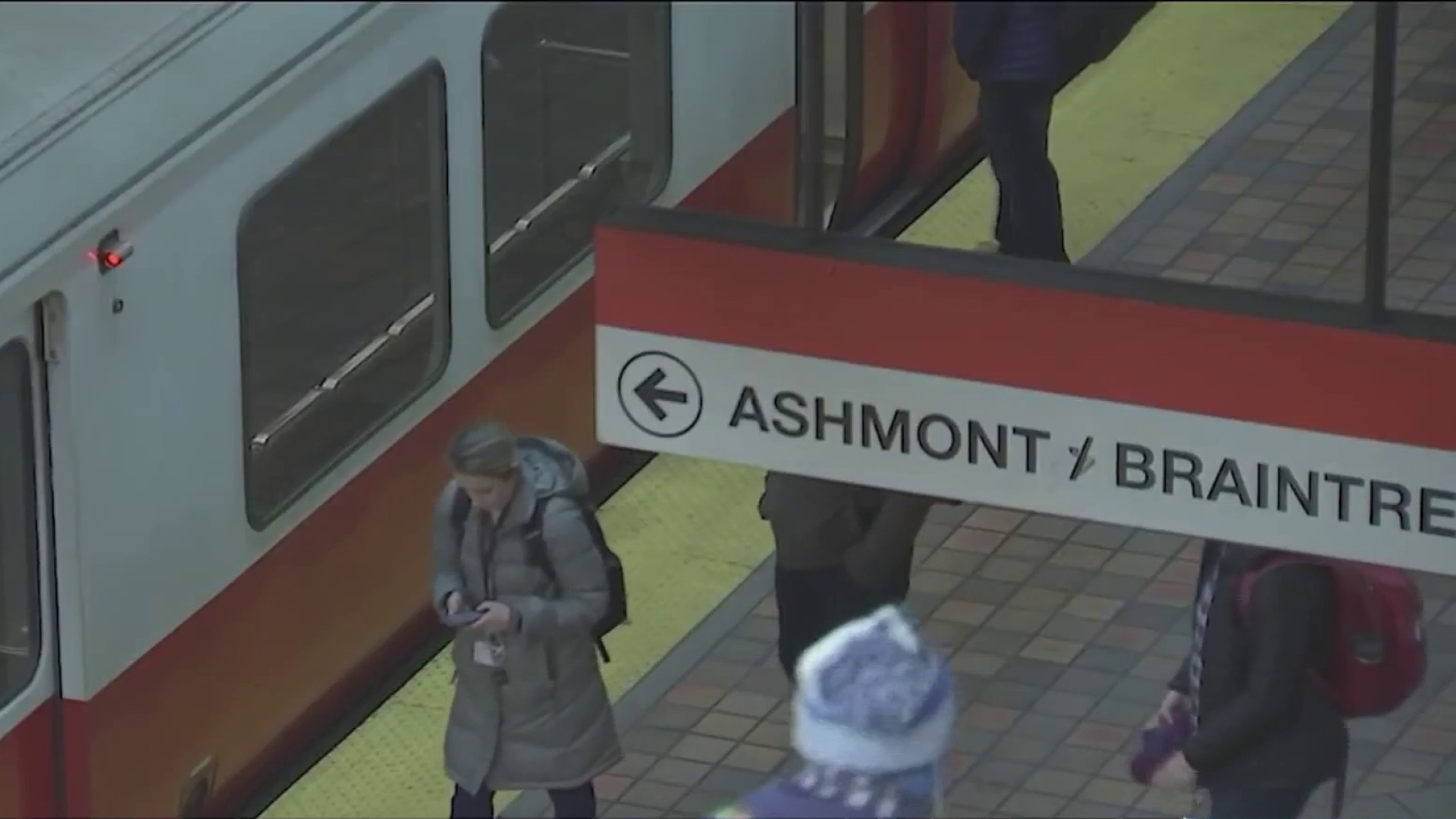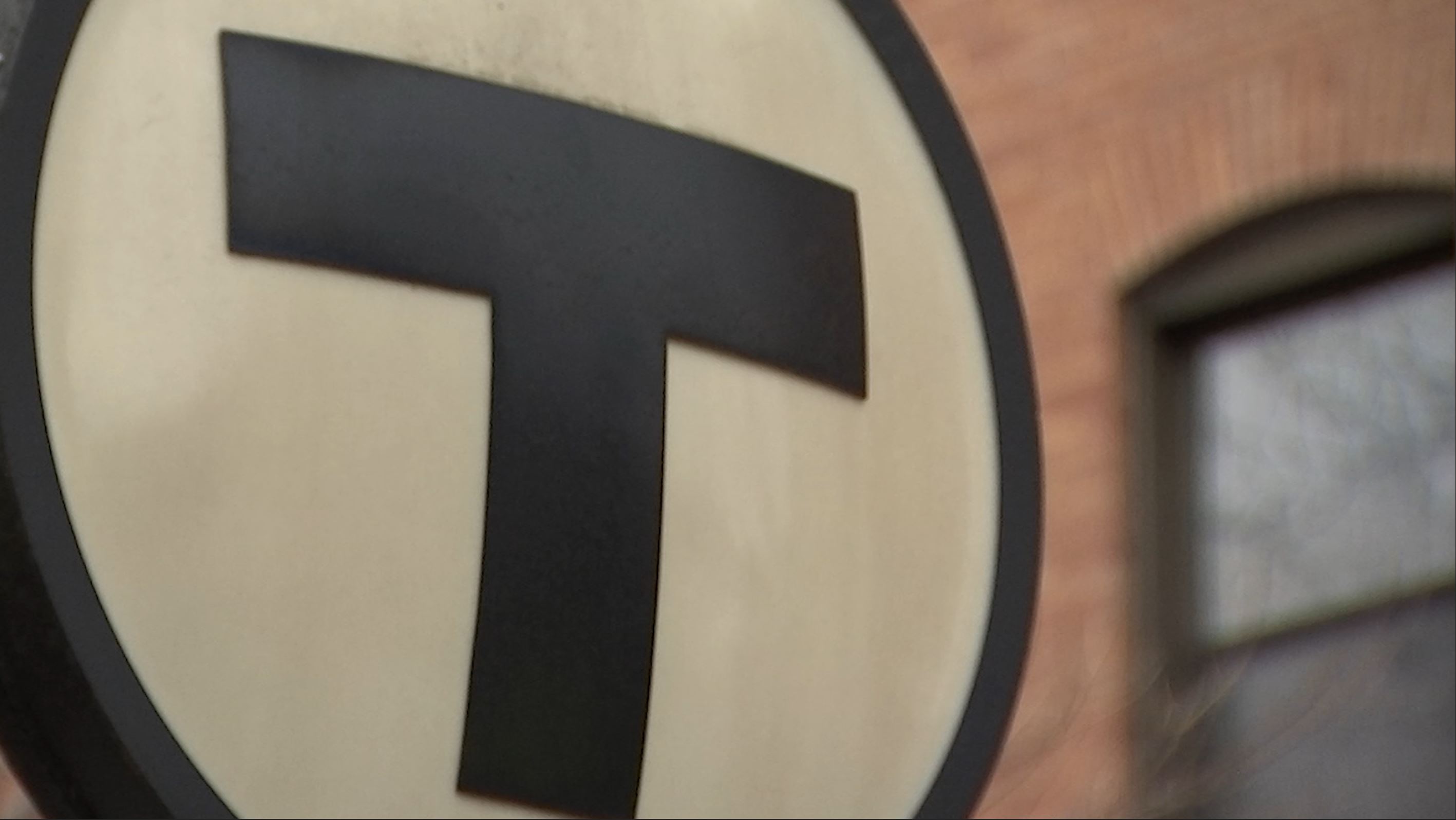The same federal regulator who previously called out the MBTA for major safety lapses on Monday praised a "new era" at the agency after a year-long track repair campaign.
Gov. Maura Healey, MBTA General Manager Phil Eng and a slew of deputies gathered to celebrate the elimination of the final slow zone on the subway system, clearing the way for what they said was the first morning commute without any stretch of track subject to speed restrictions in two decades.
WATCH ANYTIME FOR FREE
>Stream NBC10 Boston news for free, 24/7, wherever you are. |
The holiday-themed event -- one T higher-up in a Santa costume handed out rail-themed trophies, with the aid of several employees dressed as elves -- was not limited only to state officials.
Joe DeLorenzo, the Federal Transit Administration's chief safety officer, trekked up to Boston from Washington, D.C. to take part in the festivities, where he declared that the milestone "marks a key moment in the growth and in the effectiveness of the T."
Get updates on what's happening in Boston to your inbox. Sign up for our >News Headlines newsletter.
"This is a really huge accomplishment, and it really sets the tone for things going forward," DeLorenzo said. "It sets the tone of almost the beginning of a new era where we're able to go forward and deal with issues."
It's a sharp contrast from two and a half years ago, when a string of incidents including a fatal Red Line door malfunction prompted the FTA to investigate the MBTA. Federal regulators concluded in August 2022 that staffing shortages, communications problems and mismanagement created major safety problems at the T.
DeLorenzo himself, in his official capacity, penned several letters warning the MBTA about its missteps during and after the probe.
Much has changed since then. Healey, who took office in January 2023, hired Eng a few months later. Last year, Eng and his deputies laid out a plan to tackle slow zones with a year of rolling, partial shutdowns to accelerate repairs.
Healey said Monday that the constellation of speed restrictions had been costing Massachusetts "nearly a million dollars every day in GDP."
"Slow zones are no longer the Grinch that stole Christmas and commutes," Lt. Gov. Kim Driscoll said.
Jim Evers, president of the Boston Carmen's Union that represents nearly 7,000 T employees, praised Healey, Eng and other MBTA leaders for their work to eliminate speed restrictions and for the contract agreements that helped improve staffing.
"The results of the slow zone removals will once again attract ridership to the T and provide economic opportunities that will benefit all of Massachusetts," Evers said. "I've been here at the MBTA a long time, and I've never seen the agency in better shape than it is today."
The Department of Public Utilities, the state agency responsible for MBTA safety oversight, has also seen its stock rise. FTA investigators in 2022 said the DPU was falling short of its oversight duties, but the agency found no issues requiring corrective action in an audit this fall.
T officials have stressed that more issues with tracks could still emerge in the future, and that after clearing a massive backlog, the agency is now positioned to tackle any new problems as they appear.
That was the case Monday morning, when shuttle buses replaced Red Line service between JFK/UMass and Quincy Center due to what the T called a "cracked rail near Wollaston."
There's also a roughly $700 million elephant still in the control room. MBTA budget-writers project the agency will have an operating deficit about that size in fiscal 2026, which starts July 1. Closing that gap could require a substantial injection of new state funding or cutbacks that could imperil the progress of the past year.
Healey charged a new task force with studying transportation funding and submitting a report by the end of the year. The document that will emerge in the next week could offer a starting point for debate in 2025.
Eng on Monday gave Healey and Driscoll commemorative hard hats branded for the so-called Track Improvement Program repair campaign that eliminated the slow zones.
"They're once in a lifetime because moving on, now, we're going to maintain this system the way it should be," he said.
Santa Claus -- portrayed by MBTA Chief Operating Officer Ryan Coholan -- had gifts of his own to distribute. Coholan handed officials trophies in the shape of railroad spikes, saying they, too, would commemorate "this once-in-a-lifetime Christmas miracle."
Eng said the next big infrastructure campaign will focus on improving signals, power equipment and trains themselves. He targeted early 2026, before the FIFA World Cup tournament comes to the U.S. with games at Gillette Stadium in Foxborough, for significant signal upgrades on the Red and Orange Lines.




